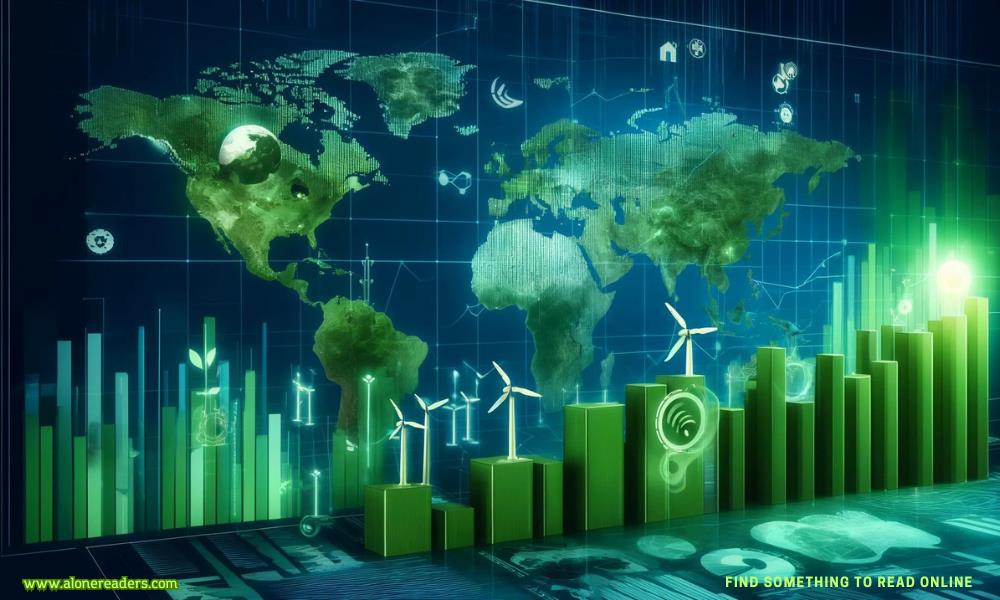
Climate policies aimed at reducing greenhouse gas emissions and promoting sustainable practices are increasingly shaping global economies. As governments worldwide implement new environmental regulations, the effects on economic growth are becoming more pronounced. These policies, while essential for combating climate change, bring both challenges and opportunities for economic development.
One significant impact of climate policies is the shift in energy production and consumption patterns. The transition from fossil fuels to renewable energy sources, such as wind, solar, and hydropower, is reshaping the energy market. This shift not only reduces carbon emissions but also creates new industries and job opportunities. Countries investing in renewable energy infrastructure are experiencing growth in sectors like manufacturing, installation, and maintenance of renewable energy systems. However, this transition also poses challenges for traditional energy industries, leading to job losses and economic restructuring in regions heavily dependent on coal, oil, and natural gas.
The automotive industry is another sector profoundly affected by climate policies. Stricter emissions standards and the push for electric vehicles (EVs) are transforming the landscape of transportation. Automakers are investing heavily in research and development to produce more efficient and affordable EVs. This shift is creating new markets and spurring innovation, but it also requires significant investments in infrastructure, such as charging stations. Furthermore, the transition to EVs is disrupting supply chains and necessitating the development of new skills among the workforce, which can be a daunting challenge for economies.
Agriculture and food production are also under the spotlight due to climate policies. Sustainable farming practices, reduced use of pesticides, and lower carbon footprints are becoming essential components of agricultural policies. These changes are promoting environmental sustainability and food security but may also increase production costs. Farmers need to invest in new technologies and practices, which can strain financial resources, especially for small-scale producers. Additionally, changes in climate patterns, influenced by global warming, are affecting crop yields and food production, further complicating the economic landscape for the agricultural sector.
The construction industry is experiencing significant transformations as well. Building codes and regulations are increasingly incorporating sustainability criteria, such as energy efficiency, use of eco-friendly materials, and waste reduction. While these changes drive innovation and reduce the environmental impact of construction, they also increase costs and require new expertise. Builders and developers must navigate these regulations, often leading to higher project expenses. However, the long-term benefits of sustainable buildings, including lower operating costs and increased property values, can offset the initial investments.
Financial markets are also responding to climate policies. Investors are increasingly considering environmental, social, and governance (ESG) criteria when making investment decisions. Companies with strong environmental practices are attracting more investment, while those failing to address climate risks face divestment and reputational damage. This shift is pushing businesses to adopt more sustainable practices, which can enhance their competitiveness and resilience. However, the transition to a low-carbon economy requires substantial capital investments, posing challenges for companies with limited financial resources.
On a global scale, climate policies are influencing international trade and economic relations. Countries with stringent environmental regulations may impose carbon tariffs on imports from nations with lax climate policies. This move aims to level the playing field and prevent carbon leakage, where companies relocate to countries with less stringent regulations to avoid compliance costs. While carbon tariffs promote global environmental standards, they can also lead to trade disputes and impact the competitiveness of exporting countries.
Developing countries face unique challenges in implementing climate policies. Limited financial resources, technological capabilities, and institutional frameworks can hinder their ability to adopt and enforce environmental regulations. International support and cooperation are crucial to helping these countries transition to sustainable economies. Climate finance, technology transfer, and capacity-building initiatives can bridge the gap and ensure that developing nations are not left behind in the global push for sustainability.
Despite the challenges, climate policies offer significant opportunities for economic growth and development. The green economy, characterized by low carbon emissions and sustainable practices, is becoming a major driver of innovation and job creation. Investments in clean technologies, renewable energy, and sustainable infrastructure are generating new economic activities and promoting resilience against climate risks. Moreover, addressing climate change through proactive policies can prevent the severe economic impacts of environmental degradation, such as extreme weather events, loss of biodiversity, and health crises.
In conclusion, the impact of climate policies on global economies is multifaceted, presenting both challenges and opportunities. As countries navigate the transition to a sustainable future, balancing economic growth with environmental protection remains a critical task. By embracing innovation, fostering international cooperation, and investing in sustainable practices, economies can thrive while addressing the pressing issue of climate change. The journey towards a greener future is complex, but the long-term benefits for both the environment and the economy are undeniable.